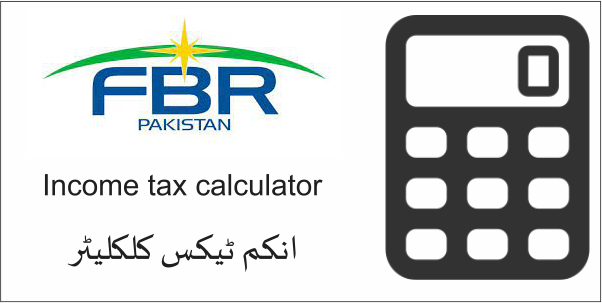Understanding how income tax works in Pakistan is crucial for both individuals and businesses. With the federal budget for the fiscal year 2024-2025 introducing new tax slabs, it’s important to grasp these changes to manage your finances better. We breaks down everything you need to know about the income tax slabs for FY 2024-2025, how they impact different income groups, and how to calculate your taxes.
What is Taxable Income?
Taxable income is the portion of your income that is subject to income tax. It includes your salary, business profits, rental income, and other earnings. From this total, you can subtract certain deductions and exemptions as per tax laws, resulting in your taxable income.
Progressive Tax System in Pakistan
Pakistan uses a progressive tax system, meaning the tax rate increases as the taxable amount increases. This system ensures that individuals with higher incomes contribute more in taxes, which helps in reducing income inequality and funding public services.
Income Tax Slabs for FY 2024-2025
The recent federal budget introduced new tax slabs that come into effect from July 1, 2024. Here’s a breakdown of these new slabs:
- Income up to Rs. 600,000: 0%
- Income from Rs. 600,000 to Rs. 1,200,000: 5% of the amount exceeding Rs. 600,000
- Income from Rs. 1,200,000 to Rs. 2,200,000: Rs. 30,000 + 15% of the amount exceeding Rs. 1,200,000
- Income from Rs. 2,200,000 to Rs. 3,200,000: Rs. 180,000 + 25% of the amount exceeding Rs. 2,200,000
- Income from Rs. 3,200,000 to Rs. 4,100,000: Rs. 430,000 + 30% of the amount exceeding Rs. 3,200,000
- Income above Rs. 4,100,000: Rs. 700,000 + 35% of the amount exceeding Rs. 4,100,000

Impact of New Tax Slabs on Taxpayers
Low-income Earners
For those earning up to Rs. 600,000 annually, there is no change, as they will continue to pay 0% tax. This provides relief to low-income earners, ensuring they are not burdened by taxes.
Middle-income Earners
Individuals earning between Rs. 600,000 and Rs. 4,100,000 will see varying rates of taxation. The progressive nature of these slabs ensures that taxes are proportional to income, with moderate increases as income rises.
High-income Earners
High-income earners, those making over Rs. 4,100,000 annually, will experience the highest tax rate of 35%. This ensures that those with the greatest ability to pay contribute more significantly to public revenues.
How to Calculate Your Income Tax
Calculating your income tax involves applying the relevant tax rates to your taxable income. Here’s a step-by-step guide:
- Determine your total income.
- Subtract any deductions and exemptions to get your taxable income.
- Apply the appropriate tax slab rates to your taxable income.
Example: If your taxable income is Rs. 2,500,000:
- For the first Rs. 600,000: 0%
- For the next Rs. 600,000 (Rs. 600,001 to Rs. 1,200,000): 5% of Rs. 600,000 = Rs. 30,000
- For the next Rs. 1,000,000 (Rs. 1,200,001 to Rs. 2,200,000): Rs. 30,000 + 15% of Rs. 1,000,000 = Rs. 180,000
- For the remaining Rs. 300,000 (Rs. 2,200,001 to Rs. 2,500,000): Rs. 180,000 + 25% of Rs. 300,000 = Rs. 75,000
Total tax = Rs. 30,000 + Rs. 180,000 + Rs. 75,000 = Rs. 285,000
Income Tax Calculator FY 2024-2025
Income Tax Calculator FY 2024-2025
Filing Income Tax Returns
Filing your income tax returns is crucial to stay compliant with the law and avoid penalties. Here’s how you can do it:
- Gather all necessary documents such as income statements, receipts, and bank statements.
- Fill out the tax return form available on the Federal Board of Revenue (FBR) website.
- Submit the form online through the FBR’s e-filing system or manually at a tax office.
- Pay any taxes due as per your calculations.
Common Mistakes to Avoid
- Misreporting Income: Ensure all income sources are accurately reported.
- Ignoring Deductions: Make sure to include all eligible deductions to reduce your taxable income.
- Late Filing: File your returns on time to avoid penalties and interest.
Government Initiatives and Tax Reliefs
The government offers various tax incentives and reliefs, particularly for sectors such as agriculture, technology, and startups. These initiatives aim to stimulate economic growth and provide support to emerging industries.
Comparing FY 2024-2025 Tax Slabs with Previous Years
The new tax slabs represent a shift towards higher taxation for high-income earners. Compared to previous years, the rates have increased marginally, aiming to boost revenue without overburdening taxpayers.
FAQs about Income Tax in Pakistan
Who Needs to Pay Income Tax?
Any individual or business earning above the exemption threshold must pay income tax. This includes salaries, business income, rental income, and other earnings.
What Happens if You Don’t Pay?
Failing to pay income tax can result in penalties, interest on the unpaid amount, and legal action by the tax authorities.
How to Get Help with Taxes?
You can seek assistance from tax professionals, accountants, or use online resources provided by the FBR. The FBR website also offers guidance and tools for taxpayers.
Understanding the new income tax slabs for FY 2024-2025 is essential for effective financial planning. By knowing how these changes impact your taxable income and how to calculate your taxes, you can better manage your finances and ensure compliance with tax laws.
FAQs
- What are the new income tax slabs for FY 2024-2025?
- The new slabs range from 0% for incomes up to Rs. 600,000 to 35% for incomes above Rs. 4,100,000.
- How do I calculate my taxable income?
- Subtract eligible deductions and exemptions from your total income to determine your taxable income.
- What are some common deductions available?
- Deductions can include medical expenses, charitable donations, and certain business expenses.
- When is the deadline for filing income tax returns?
- The deadline typically falls on June 30th each year, but it’s advisable to check the FBR website for any extensions or changes.
- Are there any penalties for late filing?
- Yes, late filing can attract penalties and interest on the unpaid tax amount.


